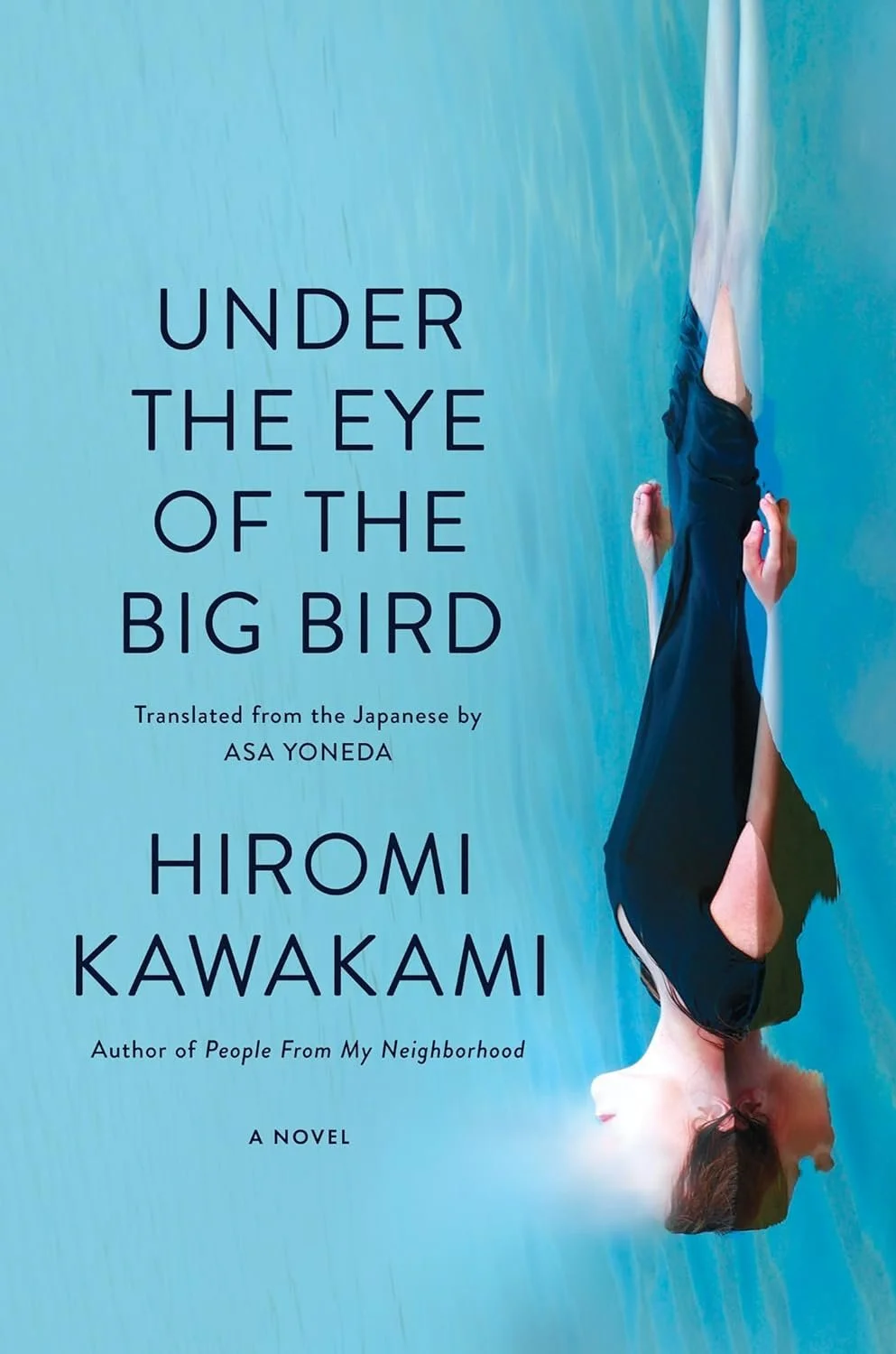Under the Eye of the Big Bird by Hiromi Kawakami, translated by Asa Yoneda (Soft Skull Press) ~Ernie Hoyt
Hiromi Kawakam is a Japanese writer from Tokyo. She started her career writing and editing for a science-fiction magazine called NW-SF after graduating from college. She also taught science in middle school and high school. She debuted as a writer in 1994 when she was thirty-six. Her first book was a collection of short stories titled 神様 (Kamisama) which translates to God in English.
Under the Eye of the Big Bird is a speculative fiction novel. It was originally published in the Japanese language in 2016 by Kodansha as 大きな鳥にさらわれないよう (Okina na tori ni sarawarenai yo). The title literally translates to To Avoid Being Carried Away by Big Birds. The English edition was translated by Asa Yoneda, who also translated Rin Usami’s Idol, Burning (Asia by the Book, December 2023).
The book is written as a collection of connected short stories. It’s the distant future and humans are on the verge of extinction. Those who are left live in small, isolated communities. They are under the protection and care of “Mothers” who are not really considered human. The “Mothers” all share one memory and consciousness and are very kind to humans.
Some children are made in factories, others are clones from the original copy of themselves, while some children grow by photosynthesis, similar to plants. They also have a slight green hue to their complexion.
There are also a number of “Watchers” who may or may not be human. They can live for thousands of years as their consciousnesses can be transferred to their clones. It is their job to oversee the community of humans in the hopes that mankind will survive. It was the “Watchers”, Ian and Jakob who came up with the current system to preserve the last remaining humans and hope for evolution to occur to ensure mankind’s survival.
Near the end of the book, mankind’s quest for progress and ultimate decline is described by one of the final living “Mother”. She uses “you” to collectively refer to humans as she describes her emergence, how she came into being.
She tells one of the last living humans, “At a certain point in the past, you came up with the technology to produce learning machines whose capacity to process information was extremely close to your own”. This new technology was called Artificial Intelligence or AI for short. The mother further explains, “But before you could use what you created as a result of your success, you first had to consider the implications - legal, moral, philosophical and so on”.
What really hits home and is true even today is how the “Mother” describes the fear humans feel towards their own creation. The “Mother” says, “what you feared, to put it bluntly, was the possibility that the powers AI had would grow far to surpass yours, such that AI would take over human society as result”.
Can we really leave the future to humanity to humans or will they make the same mistakes they made in the past over and over again? Are humans leading the way to their own extinction? Will there be such a thing as “hope” left in the future?
It is my opinion that this book will haunt your mind long after you have finished reading it.
